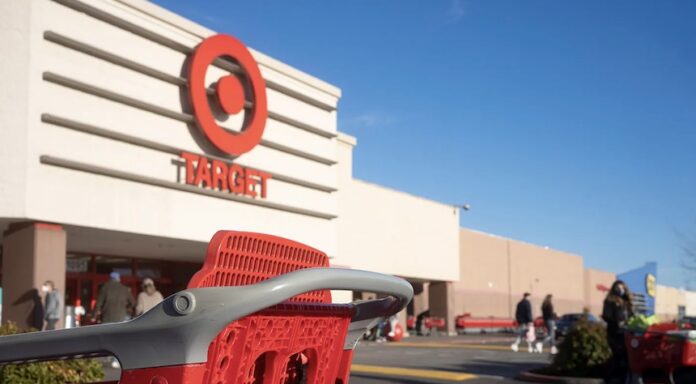Locked cases are one of the strategies Target is using to combat shoplifting.
Social media users have been captivated by the company’s decision to lock up all personal care products in a store on San Francisco’s Folsom Street. WNCT-TV reported this has been happening for certain items since October.
A Target in Riverdale, New York is also locking up rows of its personal care section, and the staff has to open the cases.
Target has a “multilayered approach” to fighting theft, a spokesperson for the company said on Tuesday.
The spokesperson added: “This includes technology in the store, training of store leaders and members of security teams, as well as partnerships with law enforcement agencies and retail trade associations.” We also use theft-deterrent marketing strategies for certain categories, like locking cases. These decisions are made locally, and we do not share any specifics.
A spokesperson confirmed that the lockable cases in the San Francisco and Riverdale shops were implemented locally due to theft.
In November, CEO Brian Cornell referred to “shortage”, as a “financial drag” for the entire industry. Retailers use the term “shrink” to describe theft, inventory losses, and other types of theft.

Target, along with other retailers, had observed a rise in organized retail crime and shoplifting. At that time, Mr. Aguirre said, “We are investing in technology and training to deter theft, and ensure the safety of our customers and staff.”
In February, The Associated Press reported that Target was putting more and more products behind locks. This included entire categories.
Walmart and other retailers have also done more to prevent theft by placing products in security cases.
In a report released recently, the National Retail Federation called organized retail crimes a “persistent problem that is endemic in the United States and appears to be increasing.” About 70% of the retailers surveyed believed that organized retail crime has become more dangerous.
The NRF reported that the total shrinkage losses increased by 4% and reached $94.5 billion in 2020. The NRF attributed these losses primarily to external theft, such as organized retail crime and shoplifting.


